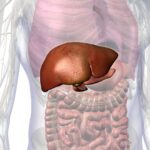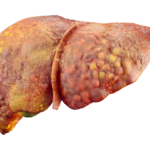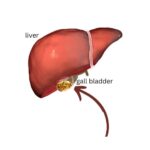
Polyuria is a medical condition characterized by the excessive production and excretion of urine. Typically, it is defined as the production of more than 3 liters (approximately 100 ounces) of urine in a 24-hour period in adults.
Causes of Polyuria
Polyuria can be caused by various factors, including:
- Diabetes Mellitus: High blood sugar levels lead to increased urine production as the kidneys attempt to excrete the excess glucose.
- Diabetes Insipidus: A condition characterized by a deficiency of antidiuretic hormone (ADH) or the kidneys’ inability to respond to ADH, resulting in excessive water loss.
- Medications: Diuretics and certain medications can increase urine output.
- Excessive Fluid Intake: Drinking large amounts of fluids can lead to increased urine production.
- Kidney Disorders: Certain kidney conditions can affect the kidney’s ability to concentrate urine.
- Hypercalcemia: Elevated calcium levels in the blood can impair the kidney’s ability to concentrate urine.
- Caffeine and Alcohol: Both substances have diuretic effects, increasing urine production.
Symptoms of Polyuria
The primary symptom of polyuria is the production of unusually large volumes of urine. This can be accompanied by:
- Frequent urination, especially at night (nocturia)
- Thirst
- Dehydration (if fluid intake does not match fluid loss)
Diagnosis and Treatment
Diagnosing polyuria involves a thorough medical history, physical examination, and various tests to determine the underlying cause. These tests may include blood glucose levels, urine tests, and assessment of kidney function.
Treatment depends on addressing the underlying cause. For example:
- Diabetes Mellitus: Managing blood sugar levels through diet, medication, or insulin.
- Diabetes Insipidus: Treating with desmopressin (a synthetic form of ADH) or addressing the underlying cause.
- Medication Adjustment: Modifying or discontinuing diuretic or other medications under medical supervision.
HOMEOPETHIC REMEDIES FOR POLYURIA
- Arsenicum Album: This is often recommended for individuals who experience frequent urination, especially at night. They may also feel restless and anxious.
- Nux Vomica: Suitable for people who have frequent and urgent urges to urinate, often in small amounts. It is often recommended for individuals who lead a sedentary lifestyle, consume stimulants like caffeine, or have a high-stress job.
- Pulsatilla: This remedy is used for people who experience frequent urination, especially during the day. They may also have a tendency to feel thirsty and have a mild, gentle, and yielding nature.
- Phosphorus: Often used for individuals who experience excessive thirst and frequent urination. These individuals might also have a craving for cold drinks and feel fatigued easily.
- Sepia: Suitable for those who have frequent urges to urinate, often with a sensation of pressure in the bladder. They may also experience a bearing-down sensation and feel irritable.
- Sulphur: This remedy is used for individuals who have a burning sensation while urinating, along with frequent urination. They might also have a tendency to feel hot and be thirsty.
- Lycopodium: Helpful for individuals who have frequent urination, especially at night. They may also have a bloated feeling and crave sweets.
























































































Good – I should certainly pronounce, impressed with your website. I had no trouble navigating through all the tabs and related info ended up being truly easy to do to access. I recently found what I hoped for before you know it at all. Quite unusual. Is likely to appreciate it for those who add forums or something, site theme . a tones way for your customer to communicate. Nice task.